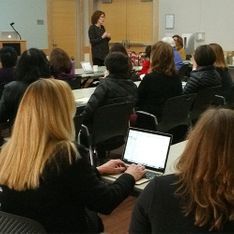- Take AP exams which usually run around $95, and many institutions accept satisfactory scores as transferable course credit. Spending less time in college saves you money.
- Pay to live on campus for only one year and then apply to be a Resident Assistant; this position on campus usually pays for your room and board. As an RA, you are paid to live on campus and your travel expenses to and from school are lowered.
- At the end of your first-year you will know what classes you will be taking next semester. Contact students who are currently in those classes and ask that they sell their textbooks directly to you, no shipping and notes included. Or rent your textbooks from chegg.com.
- Check your State Community College Free program. Many have the option to complete 2 years and transfer to a state four-year college.
- Find a non-student staff job on campus. Many positions come with reduced tuition while employed.
- Join ROTC - Receive scholarships and stipends in exchange for a commitment to serve your country (usually 4 years) after graduation. You will commission as a military officer - cool!
- Join AmeriCorp - The domestic Peace Corp. Just like the Peace Corps, AmeriCorps participants receive an allowance and some programs provide housing. Health coverage, training, and student loan deferment are also included with the programs. At the completion of their assignment, participants receive on average $4,725 towards college or graduate school, or the repayment of student loans.
- Earn your degree online from an accredited institution!
- Attend part time and ask the registrar if any "life-time learning" credits can be applied to elective credits.
- Find a job that will reimburse you for college credits earned. There are large companies that will offer this perk even to new and entry level employees.
Written by: Margaret Rothe, Career in higher education, Master of Higher Education, Student Affairs, owner of HigherGrounding, a college consulting firm; a founder of, CounselMore, College Counseling Software, a college search, list builder and professional college planning management tool.

At this point in the year, most top schools have let students from the Early Applications and Early Decision round know their results. We are celebrating all of the acceptances with you!! If you’ve been deferred or denied, we want you to take a minute and think about your school list and forge a plan to show continued interest where you were deferred. The application season has been different this year. There were higher than usual numbers of students applying to top universities.This graph shows significant growth in applications. Look at MIT! We believe that many of the early applicants were those students with high test scores, or students who took a chance with their reach schools and did not have test scores. As predicted earlier in the year, this clogged the system. The COVID-19 pandemic has made this year see a more competitive applicant pool at many national universities and liberal arts colleges. So, if your early decision results haven’t gone according to plan, do not stress. You can work through this! And if you still have not heard from your schools, many are predicting that results will be out in late January. We believe that students end up where they belong. It is important to have a realistic college list with a good mix of schools. If you were deferred or denied, this is NOT the time to apply to tons of additional schools to hedge your bets for regular admissions; it is time to look at your list and, if you had balance before this started, you should be fine. Anotheroption is to add 1 more safety school that you would love to attend, so that you have your bases covered. Lee Norwood is a member of the Independent Educational Consultants Association, Higher Education Consultants Association, NACAC Charactor Collaborative and she is on faculty with the CounselMore Business Development Academy. She speaks at industry conferences on topics like “Meeting Gen Z Where They Are” and “Growing Your Business” and she has been featured on podcasts with CollegeScoops, ThirdFloor Views, Tests And The Rest, and others.If you are interested in our process, our team, reviews and outcomes, just look at our website www.annapoliscollegeconsulting.com





